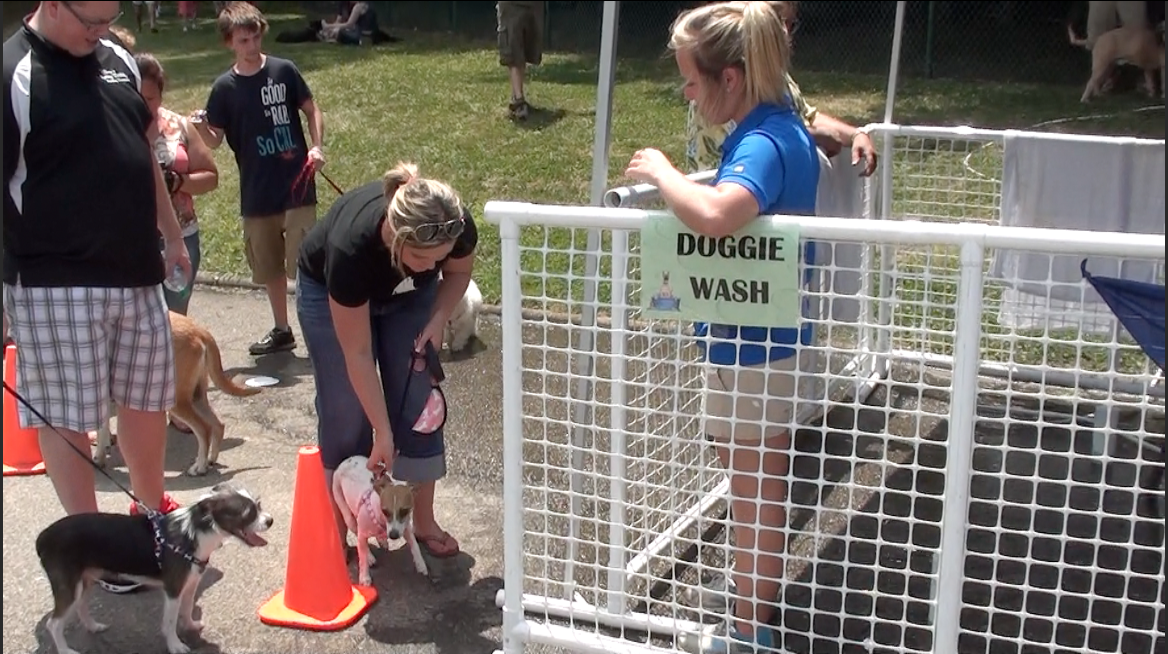On August 20, pet organizations around the world will come together to raise awareness about the plight of homeless animals. Since the International Society for Animal Rights (ISAR) introduced the concept in 1992, International Homeless Animals Day observances have helped shed light on ways to curb animal overpopulation and improve the plight of homeless dogs, cats and other pet animals. In honor of the day, held on the third Saturday of August every year, here are eight ways you can help homeless animals in your community.
1. Donate to your local shelter.

Every dollar counts when caring for homeless dogs, cats and other animals at an animal shelter or rescue group. Drop some money in the jar at your local adoption event, or make a donation through the group's website. Many companies will match all or a portion of their employees' donations, which will stretch your charity dollars even further.
2. Round up at the pet store.

Several pet store chains give customers the opportunity to "round up" at the register, donating those extra few cents to animal welfare organizations. Consider donating a bit of change the next time you buy supplies for your own pet. Every little bit counts!
3. Donate supplies to shelters and rescue groups.

If your budget doesn't allow for cash donations, take a look around your house. Before you toss out that blanket with the small tear or that towel of the wrong color, ask your local animal shelter if they would like it. Shelters use blankets and towels in kennels and enclosures to provide snugger, more comfortable places for animals to sleep and rest. Your local shelter may also welcome donations of food, toys and other pet supplies.
4. Volunteer your skills.

When you stop by the shelter to drop off your pet supplies, ask the staff if you can donate your time and talents. Are you an experienced accountant? Maybe you could take an afternoon or evening once a week to help balance the shelter's books. Do you know how to create websites? Perhaps you can update the shelter's site to help potential pet owners learn more about the adoptable animals.
5. Volunteer your time.

Simply having an extra set of hands to clean enclosures, fill food bowls, and give fresh water may make a difference to your local rescue group. The shelter may have other needs that you can support, such as grooming, walking, and socializing the animals.
6. Become a foster home.

If your schedule doesn't allow you to work in the shelter itself, you can still help from home. Many shelters have more animals than they have space, and rely on volunteers to "foster" adoptable animals until forever homes are found. By providing a foster home, you help adoptable animals adapt to the daily routines of a household and how to get along with other animals, children and people of all ages. This process helps make a homeless cat or dog that much more appealing to a potential new owner.
7. Help at adoption events.

Your foster pets will shine at adoption events organized by your local shelter. When you bring the foster animals to the event, stay to help the staff. You can help keep the animals calm by petting and talking to them. You can answer questions about the temperaments and personalities of the adoptable animals. Ask your shelter staff how you can help at the next adoption event.
8. Encourage your friends and family to adopt a pet from a shelter or rescue group.

When you learn the dates for the next adoption event sponsored by your local shelter, ask your friends and family to attend. If you know someone who wants to add a pet to their home, encourage them to consider adopting a homeless animal.
9. Share on social media.

Your local shelter likely has a website with profiles of adoptable animals. Share the links on your social media platforms. If you know of someone looking for a new pet, encourage them to visit the shelter's site. Repost profiles of homeless pets that you see on Facebook, Instagram, Twitter and other platforms. You never know which of your followers or friends has the heart and the home to welcome those adoptable animals.
10. Spay or neuter your own pets.

Finally, you can help homeless animals by not creating more homeless animals. Make sure your pets are spayed or neutered, and commit to being their caregiver for the duration of their lives.






